


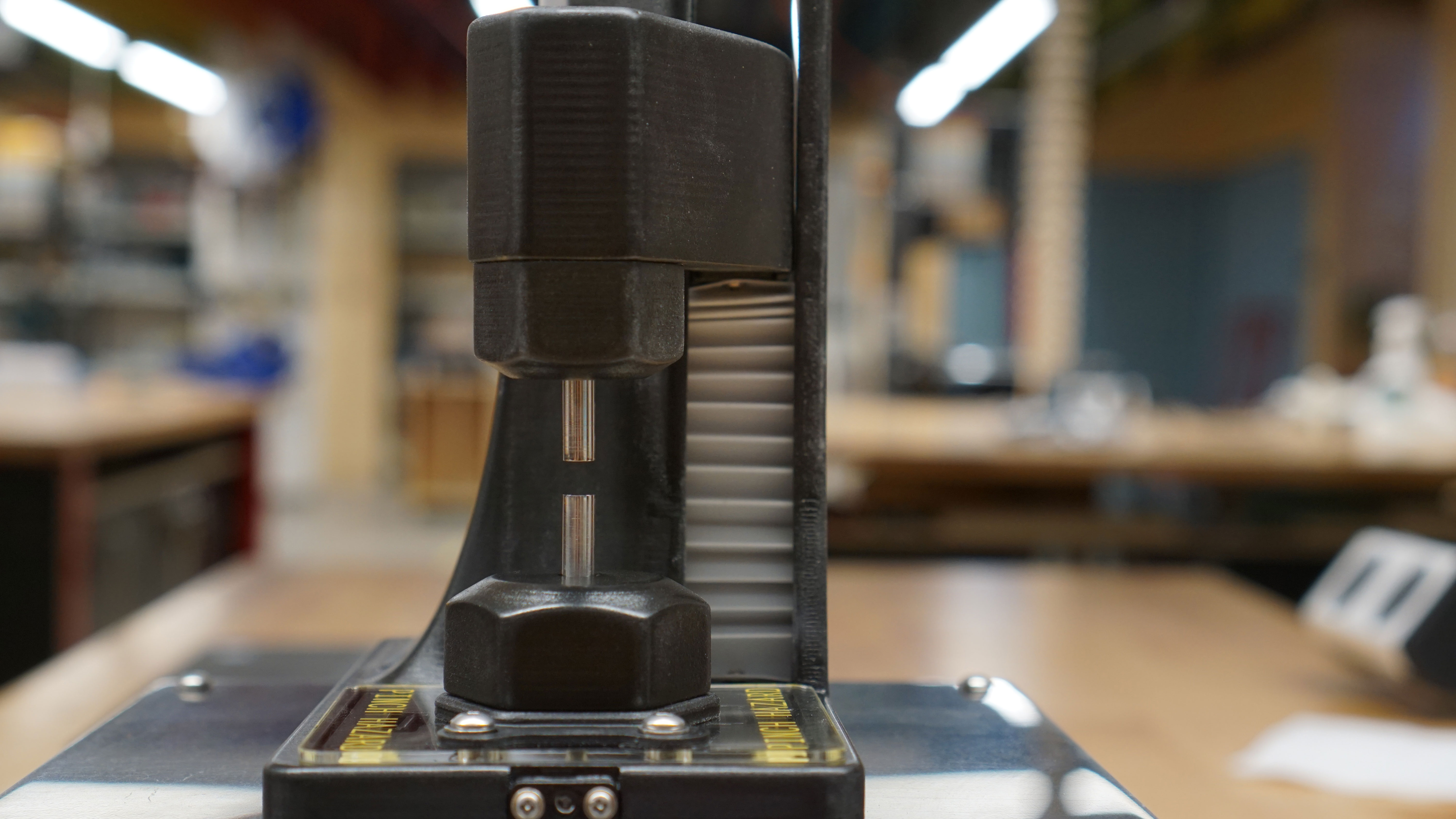
The Stretching Rheometer is a variable rate actuating system which stretches fluid between two surfaces, as a test of linear fluid elasticity. Our key design objectives were to deliver a robust solution, which supported arbitrary motions through a programmable interface. Our client was interested in running tests with oscillatory, exponential and other motion profiles which were not offered by the equipment they had available. Our solution has the capability to follow any motion profile via a piecewise approximation accurate to 0.1mm.
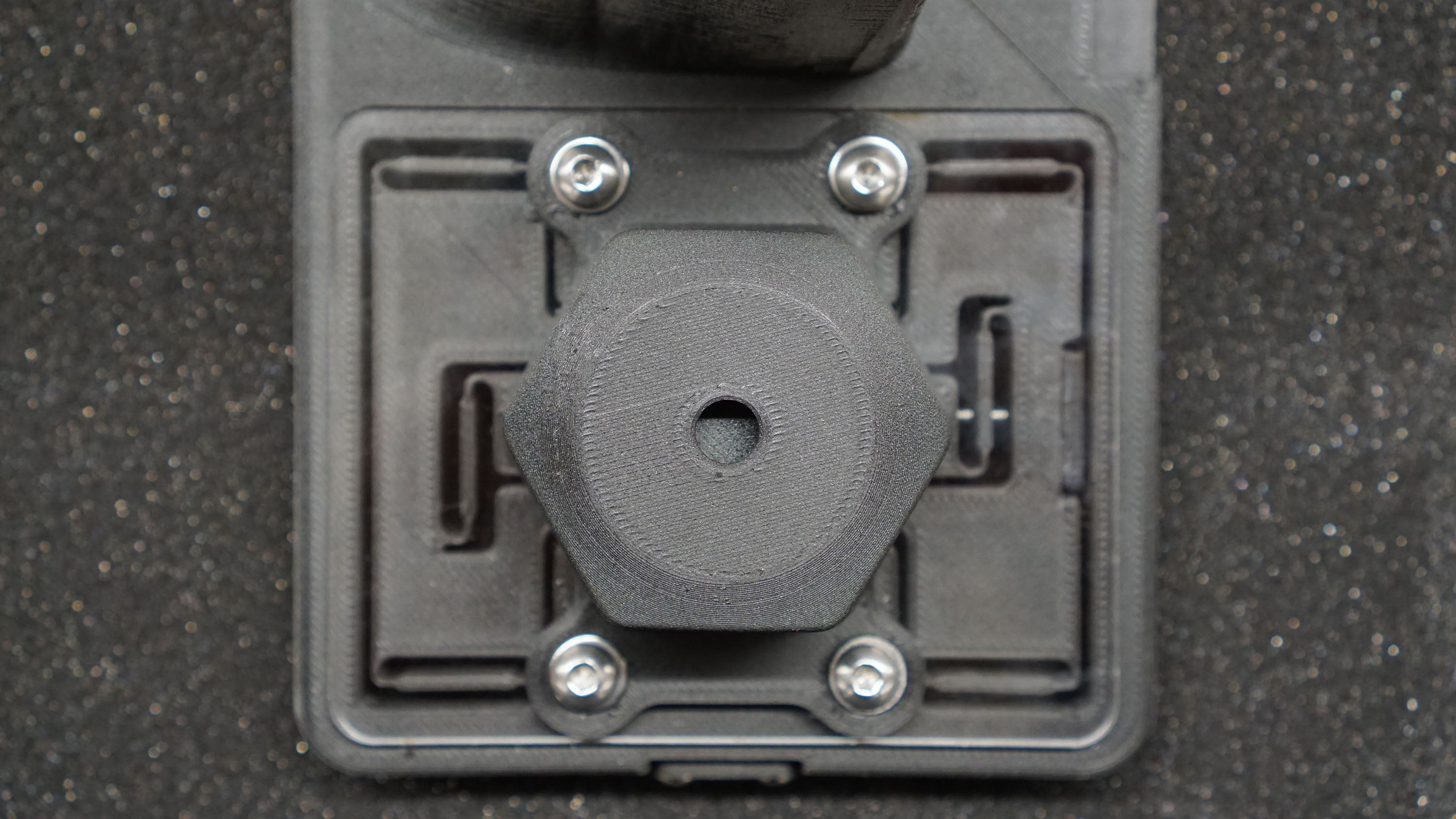

The development of the rheometer reflects our design ideology at Apiary Works - thoughtful design leveraging high quality off-the-shelf components and running efficient software.
The actuator is driven by a brushless motor with closed loop feedback through an encoder, enabling high accelerations and power in a small package, and providing information to the controller to detect the machine state and any errors. This closed loop system allows for many valuable features, such as sensor-less calibration using stall detection. This means that any tooling, custom or original, can be mounted to the base and actuator without needing to change any settings - the calibration cycle on power-on will detect those changes and update its parameters accordingly.
The user interface is a small LCD screen displaying the machine status and setup menus which is controlled with a rotary dial. The interface was designed to be intuitive and discoverable while also presenting sufficient configuration options for experienced users. This involves designing to a robust specification which accounts for accidental misuse and foreseeable hazards–an attempt to avoid a thick manual full of warnings.
Our tool mounts involve a 3D printed cam-locking mechanism that can be operated by hand or with a provided spanner. The same spanner can be used to adjust the three feet, arranged in a triangle to allow for quick and accurate manual levelling. These feet are also designed with rubber contacts to provide vibration dampening and a strong grip on uneven surfaces.
We delivered the first revision of this product, and have continued to work with with our client, providing small updates and modifications in response to questions and feedback. By using high quality mechanical components and state-of-the-art microcontrollers, we are able to design our products in such a way that most requests for new features can be serviced with a software update; i.e. something that requires minutes to install and verify, meaning minimal down time and no component cost.



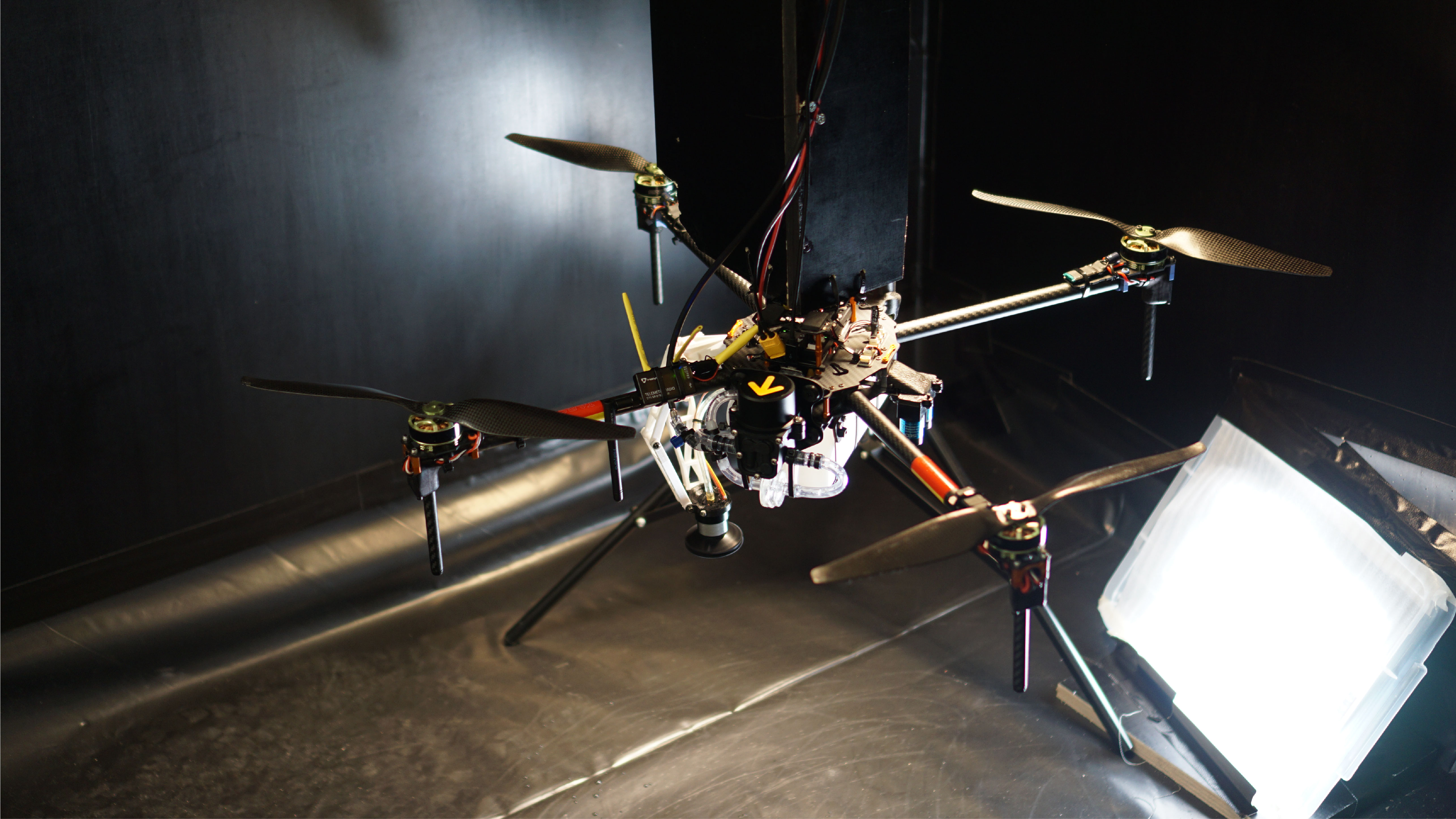
The Research Sprayer Drone is a fully functioning crop spraying drone which was developed to assist the client to assess the effect of rotor wash on conventional agricultural sprayers. It was designed to allow for experiments to be performed in the laboratory and outdoors.
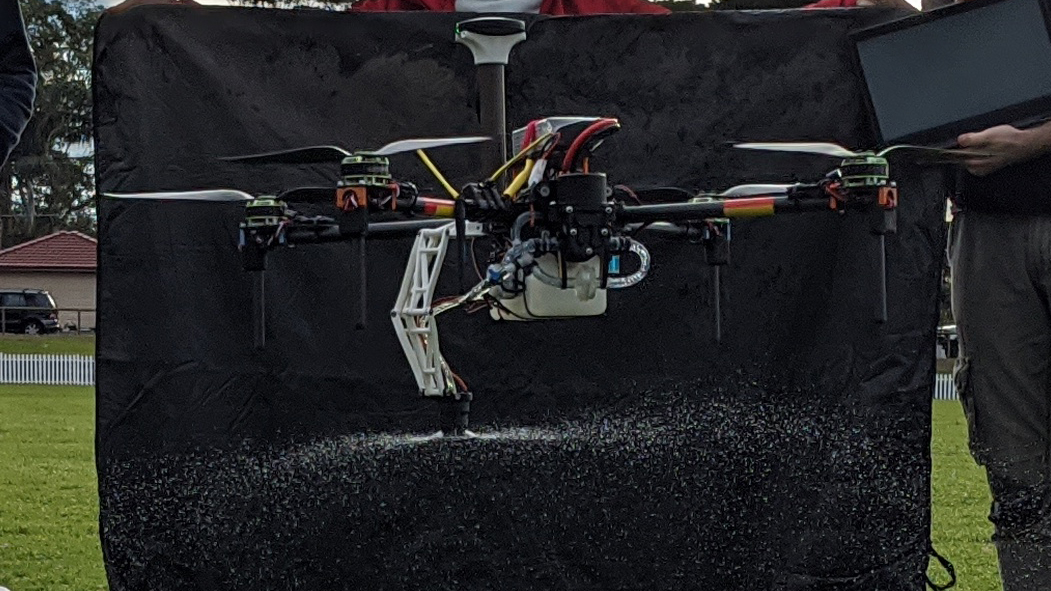
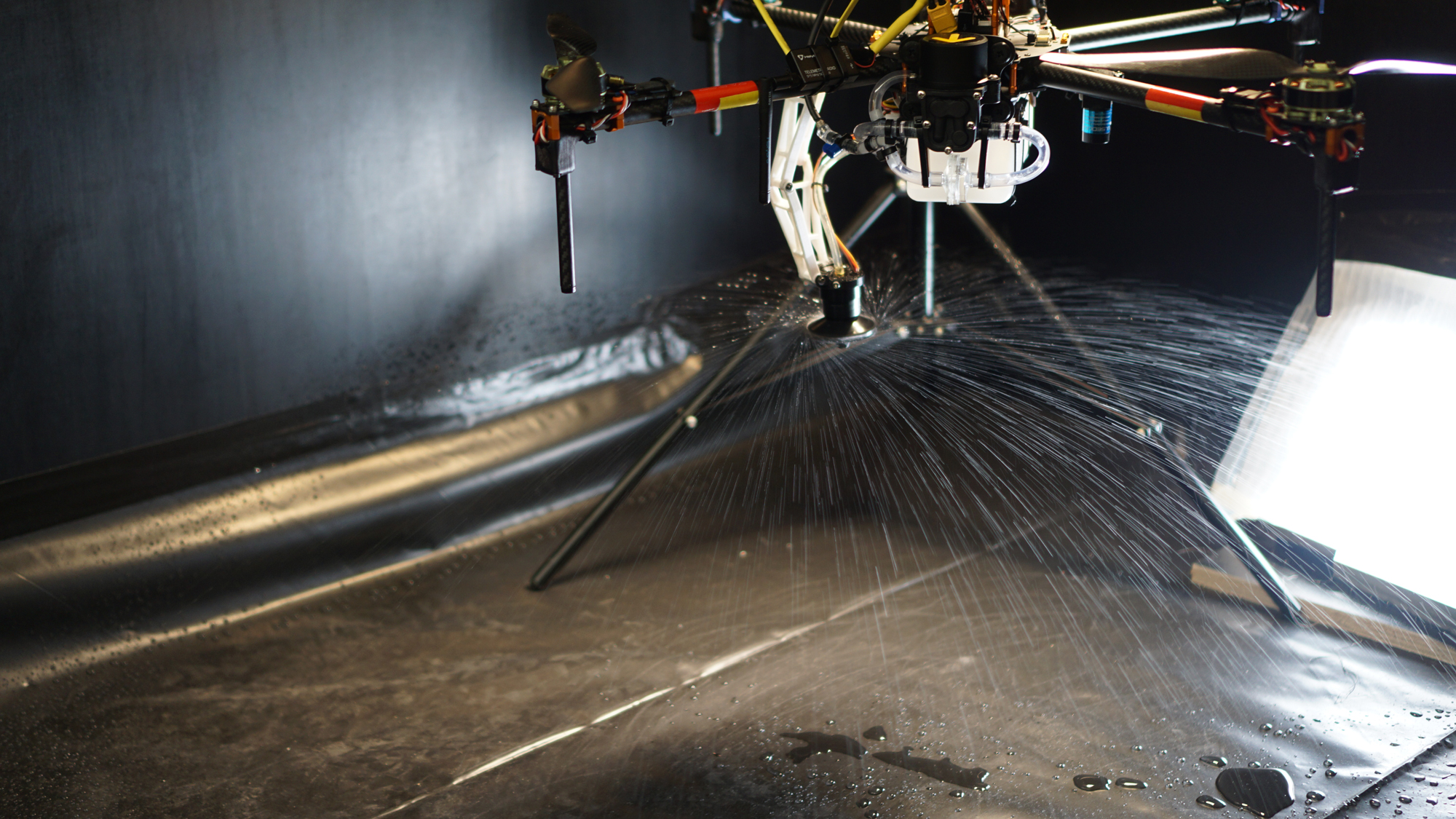
The Research Sprayer Drone was developed using off-the-shelf drone components to reduce cost and shorten the development time. As custom harness was developed to allow for the drone to be fixed in the laboratory for safety purposes.
The sprayer was constructed based on specifications provided by the client. The control system for the sprayer was developed in-house and allows for precise control of the feed rate and the rotation speed.